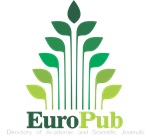The Determination of Lightning Disaster Hazard Index Using Analytical Hierarchy Process
DOI:
https://doi.org/10.22373/ekw.v3i2.1630Keywords:
lightning, hazard index, analytical hierarchy processAbstract
In order to minimize the losses caused by lightning, a lightning disaster management system is compulsory. It should provide lightning disaster information in an area to get the risk values of lightning strikes. One way is to establish a lightning disaster risk map. The disaster risk map consists of hazard map, vulnerability map and capacity map. However, lightning yet has not been included in the regulation guiding the establishment of risk map for several disasters in Indonesia. This study is conducted to develop a process to determine general hazard index for lightning disaster.References
Berger, G. (2007). Lightning-caused Accidents and Injuries to Human. Proceeding from IX International Symposium on Lightning Protection. Foz do Iguacu.
Bourscheidt, V., Pinto Jr., O., Naccarato, K.P. and Pinto, I.R.C.A. (2008). Dependence of CG Lightning Density on Altitude, Soil Type and Land Surface Temperature in South of Brazil. 20th International Lightning Detection Conference. Tucson, USA.
Gruenig, R. and Kuehn, R. (2007). Successful Decision-making: A Systematic Approach to Complex Problems (Translation). Heidelberg: Springer.
Holle, R. (2008). Annual Rates of Lightning Fatalities by Country. 20th International Lightning Detection Conference. Tucson, Arizona.
Holle, R and Lopez, R. (2003). A Comparison of Current Lightning Death Rates in the U.S. With Other Locations and Times. International Conference on Lightning and Static Electricity, Blackpool, England, Royal Aeronautical Soc., paper 103-34 KMS, 7 pp.
Hu, H., Wang, J. and Pan, J. (2014). The Characteristics of Lightning Risk and Zoning in Beijing Simulated by a Risk Assessment Model. Natural Hazards and Earth System Sciences, 14, 1985–1997. Copernicus Publications.
Husni, M. (2002). Mengenal Bahaya Petir (Eng: Knowing Lightning Hazard). Jurnal Meteorologi dan Geofisika, 3(4), Oktober-Desember 2002. Jakarta: BMKG.
Jayaratne, R and Kuleshov, E (2006). The Relationship between Lightning Activity and Surface Wet Bulb Temperature and Its Variation with Latitude in Australia. Meteorology and Atmospheric Physics 91:pp. 17-24.
Lopez, R., Holle, R., Heitkamp, T., Boyson, M., Cherington, M. and Langford, K. (1993). The Underreporting of Lightning Injuries and Deaths in Colorado. Bulletin of the Amer. Meteorological Soc., 74, 2171-2178.
Poelman , D.R. (2008). On the Science of Lightning: An Overview. Brussels: Royal Meteorological Institute of Belgium.
Regulation of the Head of Indonesian National Disaster Management Agency Number 2 Year 2012.
Richey, S., Holle, R., and Cooper, M. (2007). A Comparison of Three Data Collection Methods for Reporting of Lightning Fatalities in Florida from 1995 to 2004. International Conference on Lightning and Static Electricity, paper IC07-KM01, Paris, France.
Saaty, T. (2008). Decision Making with the Analytic Hierarchy Process. IJSS, Vol. 1, No. 1.
Smith, K. (2004). Environmental Hazards: Assessing Risk and Reducing Disaster. New York: Taylor & Francis e-Library.
Statistic of Subulussalam Municipality (2016). Subulussalam Municipality in Figure 2016. Subulussalam: Statistic of Subulussalam Municipality.
Downloads
Published
Issue
Section
License
Proposed Policy for Journals That Offer Open Access Authors who publish with the Elkawnie journal agree to the following terms:
a. Authors retain copyright and grant the journal right of first publication with the work simultaneously licensed under a Creative Commons Attribution License that allows others to share the work with an acknowledgement of the work's authorship and initial publication in this journal.
b. Authors are able to enter into separate, additional contractual arrangements for the non-exclusive distribution of the journal's published version of the work (e.g., post it to an institutional repository or publish it in a book), with an acknowledgement of its initial publication in this journal.
c. Authors are permitted and encouraged to post their work online (e.g., in institutional repositories or on their website) prior to and during the submission process, as it can lead to productive exchanges, as well as earlier and greater citation of published work (see The Effect of Open Access).

























